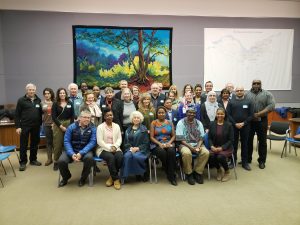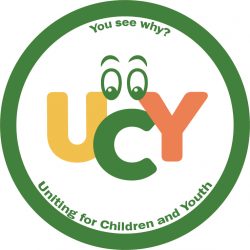
On March 4th, 2019, something significant was started. Thirty community leaders met with officials of the Ottawa Carleton District School Board – OCDSB. Their purpose was to address issues of equity, inclusion and youth empowerment. The OCDSB officials were top decision makers, Lynn Scott, chair of the board of trustees; Camille Williams-Taylor, the director of the board; Dorothy Baker, the superintendent of curriculum services, and Michele Giroux, executive officer of corporate services.
The diversity of the leaders who came together to advocate for children and youth makes the meeting significant. Indigenous, Muslim, black, brown and white people were all represented, as were homeless youth, struggling youth, and youth who are doing fine, but who could be doing so much better. There were also people from Ottawa’s three major universities. Together they represent the voices of a very large number of concerned citizens.
Conditions within the school board at this moment add to the significance of the meeting. The board of trustees is newly elected and it is in the process of drafting its strategic plan for the next four years. The board has been accused in the past of being disingenuous in its consultations with the public, but this is not a big concern at this time. Building Brighter Futures Together 2019-2023 outlines the board’s commendable efforts to be transparent and to hear what people want to see in the new strategic plan, and there are other signs contributing to positive feelings. The March 4th meeting was originally scheduled for February 13th, but a snowstorm forced its postponement. The board was most accommodating with the rescheduling, and when concern was expressed that input from the meeting might now be received too late for due consideration in creating the strategic plan, Lynn Scott, whose integrity has never been questioned, was quick to reply. “Regarding the strategic plan,” she wrote, “the work is not proceeding so fast that we won’t be able to take the group’s views into consideration, in my opinion. The strategic plan is very important, and very important that we get it right.” Another sign that equity and inclusion will be a priority over the next four years is the new director, Camille Williams-Taylor. Camille joined the board in January and in her previous role as a superintendent with the Durham District School Board, she gained considerable experience working on the issue of equity. She is also a person of colour stepping into the top job in a board where any colour at all has been hard to find. It is a sign that change is in the air.
The change in the air is more than local. A book being studied by students in the Faculty of Education at the University of Ottawa gives scope to what is happening. Whose Global Village?: Rethinking How Technology Shapes Our World sounds like it is about technology, but it is really about equity, inclusion and what voices are going to be heard. An understanding of the significance of the OCDSB March 4th meeting can be gained by putting it into some context with what the author Ramesh Srinivasan shares through the book.
Two terms he uses first need defining. One is “contact zone,” described as a space where disparate cultures or communities encounter one another. The second is “postcolonial moment”, a time that interrupts power relations that favour people of privilege and redistribute authority. “Both,” in the words of Ramesh, “describe a moment where inequality can be recognized and confronted in the hope of changing the future.” This defines the significance of the March 4th meeting. The contact zone is the OCDSB. The postcolonial moment is being created by the disparate communities represented at the meeting. It is a coming together of people with the potential to change the future in a significantly positive way. We need for all to embrace this moment.
A report on the March 4th meeting is available here: Equity, Inclusion and Youth Empowerment.


Sent from my iPad
Begin forwarded message:
From: David Newing a
Subject: A new publication/ educational resource on Global Citizenship in the 21st century
I would like to introduce myself and introduce a just published educational resource we have written on Global Citizenship in the 21st Century
I am the co Founder and Chair of the Canadian registered Non Profit Charity – The United Citizens Initiative ( UCI ) ( Registration number 85634 6804 RR0001 )
U.C.I.’s mission is to promote, through education and dialogue, global citizenship, multi-culturalism , and mutual understanding and harmony among the people of all races, cultures, religions, and alternative belief systems .
We have devoted over ten years of research to develop this educational publication on Global Citizenship and interfaith and inter racial harmony . It is entitled : ” Global Citizenship in the 21st Century – A Leap of Faith to a Better World ” aimed at Senior High School , Colleges and Universities and Millennials in general.
The most recent edition has just been published last week and now available at Chapters , Amazon or Barnes & Noble
Attached is a full brief on our agency and activities and also a recently produced
publisher’s promotional flyer on our publication
We would very much like to commend this publication to you and your group and to the education agencies you are connected with
David Newing
Chair
The United Citizens Initiative ( UCI )
E mail David.newing@sympatico.ca
Tel 1-819 827 2418
David,
Thank you for bringing ICI and the book “Global Citizenship in the 21st Century” to our attention. The powerful little quote by Zahra Liberté Aldünia, Founder of The Paradigm Shifters, contained at the front of the book says so much with so few words.
“Diversity is the artwork of the universe.”
If you haven’t already read it, you might find “Whose Global Village?: Rethinking How Technology Shapes Our World” by Ramesh Srinivasan gives direction to how we need to enjoy and celebrate diversity.
Richard